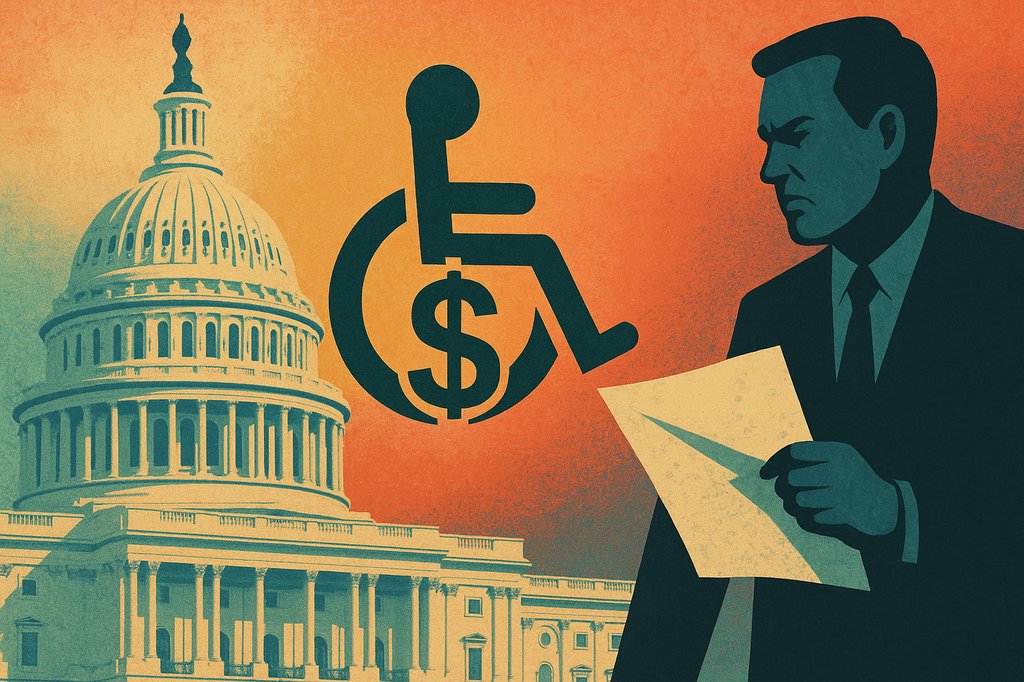2023 Santa Monica Rent Control Board Annual Report Cheat Sheet
Each year the Sant Monica Rent Control Board issues a lengthy Annual Report. This year’s edition came in at 66 pages. On the assumption it’s not on your night stand for review, I have cherry picked items that I think are of the most general interest and have reproduced and in some cases condensed them here to limit the pain of reading or the option of ignoring the whole thing. I have also added a couple of additional items from Board staff reports. With popcorn and a stiff drink ready, you may proceed.
The annual general adjustment that landlords may implement effective September 1, 2024 is 3.0%, subject to any dollar-amount ceiling that the Board may separately impose. If the Board elects to impose a dollar-amount limit, a maximum increase of $76 would apply to all units with MARs of $2,517 and above. The Board will hold a hearing at its June 13, 2024 meeting to consider imposing the $76 ceiling.
Commissioner Lonnie Guinn’s letter of resignation became effective on April 25, 2024. The Board will within thirty (30) days appoint a person to fill the vacancy until the following municipal election.
Longtime Board executive director, Tracy Condon retired after 37 years. A “nationwide” search that stretched as far as 7 miles east was conducted for her replacement. Jonathan Holub, formerly Rent Control division manager for the City of West Hollywood was selected as her replacement.
The passage of AB 1620 in 2023 now allows a qualifying tenant on a property of five or more units to move to a comparable or smaller unit on an accessible floor of the property without having to pay a new market-rate rent. This accommodation is only available to tenants with a permanent mobility-related physical disability, and tenants must make the accommodation request prior to an accessible unit becoming available.
The user base for CIVICS, the Board’s public-facing portal for filing registration forms, fee waiver and exemption applications online grew by approximately 500 new users, ending the year with approximately 1,350 accounts. Most are held by property owners and managers who have filing requirements.
Users submitted 2,738 tenancy registration forms through CIVICS during the year, most for tenancies begun in 2023. This was an increase over 2022, when 1,160 forms were filed beginning with the launch of the system mid-year. Also in 2023, about 900 tenancy registration forms were submitted on paper, resulting in a ratio of online filings to paper of three to one.
Progress also began at year end toward integrating a new payment processor, so property owners will be able to pay registration fees directly through their dashboard.
In an effort to more quickly resolve excess rent complaints, the Rent Control Board adopted changes to regulations regarding the filing of these petitions. Now, tenants must first present their claims directly to their landlords. This opens the possibility for quick resolution without the need to go through a formal process. If a landlord returns the excess rent collected, then the tenant may not file a petition; if there is no resolution after 30 days, they may. This notice requirement is also consistent with the decrease petition process where notice to the landlord is also required before filing a decrease petition. To conform to these new procedures, tenants who wish to file excess rent claims must prepare and serve notice on the landlord a written notice specifying the claimed period and amount of excess rent. Then, they must allow the landlord 30 days to respond. If there is no resolution, the tenant may file an excess rent complaint with the Agency.
Approximately 37 percent of tenants who contacted the Rent Control Agency in 2023 moved in before January 1, 1999. Considering that long-term units comprise just over 21 percent of all controlled units, this represents a disproportionate level of contact – but not a surprising one. Almost half of the 27,603 currently controlled units are 1-bedroom units. The next largest segment, more than one-third of the total, are 2-bedroom units. Together, 1- and 2-bedroom units comprise 82 percent of the controlled housing stock. Therefore, most tenants living in controlled housing are living in 1- and 2-bedroom units, of which there were 22,616 at year end. There were 27,603 controlled rental units as of December 31, 2023.
Certain single-family homes and condominiums may qualify for rent-level decontrol. There are just over 1,800 condominiums and single-family homes that have qualified, the majority of which are owner-occupied units. These units are not included in the count of controlled units.
Two-and three-unit properties occupied by an owner with at least 50 percent interest in the property can qualify for an exemption. At year end, 451 two- or three-unit properties (1,094 units) were exempt based upon owner-occupancy. This was fewer than the 476 properties (1,162 units) with this exemption in 2022.
The Ellis Act is a state law enacted in 1986 that allows owners to exit the rental housing business by evicting tenants and withdrawing rental units from the housing market. . In 2023, a total of 27 units were withdrawn from the rental housing market and 24 formerly withdrawn units returned, resulting in a net loss of three controlled units for the year.
During 24 years of vacancy decontrol, 75.3 percent of controlled units (20,786 units) have been rented at market-rateat least once. Only 5,889 (21.3percent) of controlled housing units remain occupied by renters who moved into their units before 1999. Units categorized as long-term also include 70 units with deed restrictions requiring that they be rented to low-income households at affordable rates. In 2023, 267 units were rented at market-rate for the first time. Most of these were units formerly occupied by long-term tenants or tenants with Section 8 vouchers who vacated, and their units were rented at market-rates for the first time. They also include units that were on owner-occupied properties where exemptions lapsed and newly constructed replacement units that were rented for the first time. The number of long-term units decreased as tenants moved out, units were withdrawn from the market under the Ellis Act, or properties became exempt.
Another category of controlled units is those with various affordable-housing related fee waivers, including units occupied by tenants participating in the Housing Choice Voucher Program, also known as Section 8. Section 8 units remain subject to the rent control law, but the rent levels are governed by federal contracts. Agency records of units participating in the Housing Choice program are based on registration fee waivers submitted by owners.. The net decrease of 52 units with affordable-housing related fee waivers for the year indicates there are fewer Housing Choice/Section 8 fee waivers as compared to 2022.
Controlled Rental Units by type in 2023: Rented at least once at Market-Rate 20,786; Long-Term-5,889; Sec8/Home/Tax Credit-738; $0 MAR-190; Total 27,603.
Remember how rent control was promoted as being needed to protect disabled and low-income seniors? Of the 27,603 controlled rental units in 2023, only 237 Low-Income or low-Income disabled tenants applied for and qualified for registration fee waivers.
Excluding single-family dwellings and properties with three or fewer units that may qualify for exemption, 89 percent of rent-controlled properties have between 4 and 15 units. On average, owners of about 92 percent of these properties had rented half or more of their units at least once at market rate.
In 2023, the Board received 37 buyout agreements – a noticeable uptick compared to the last three years but still not returning to pre-pandemic levels. The average buyout amount of $53,711 in 2023 was, however, the second highest since tracking began in 2015.
In the 37 years since the Ellis Act was enacted, 691 properties containing 3,340 units have been withdrawn from Santa Monica’s rental housing market. Thirty percent of the withdrawn units (1,016 units on 187 properties) were eventually returned to residential rental use and are again subject to the rent control law. Accounting for these re-rentals, there has been a net loss of 2,324 units on 504 properties since 1986. Owners who had withdrawn units during the moratoria, were nevertheless allowed to initiate eviction actions of tenants who remained housed beginning April 29, 2023. Yet, owners began the withdrawal process on only eight properties containing a total of 21 units which was almost identical to the number withdrawn in 2022.
Since 2002, property owners have been required to file copies of any eviction notice terminating a tenancy with the Agency, except when the reason is non-payment of rent. An owner’s failure to submit the copy to the Board within three days of serving the tenant may be a defense in an eviction action. The Agency received 85 notices of eviction in 2023, up significantly from the 44 received in 2022, and 51 received in 2021 but much more consistent with pre-pandemic numbers.
Tenants who allege that their rental units need repairs or maintenance, or that their housing services have been reduced, may petition to have their monthly rent decreased. 87 Decrease petitions were filed in 2023 by tenants.The Rent Board has 83 active Mediation Cases.
Property owners may petition the Rent Control Board for rent increases based on completed or planned capital improvements, lack of a fair return, or increased operating expenses not covered by the general adjustments. During 2023, no increase petitions were submitted.
Rent Control Regulation 3304 allows owners to petition for a one-time rent increase to market level if the tenant does not occupy the unit as their usual residence of return. In 2023 6 tenant-not-in-occupancy cases were accepted for filing and 1 was withdrawn following a Intent to Dismiss, 2 were granted, 2 were denied and 1 was pending.
The rent control law provides strict criteria the Board must apply before granting permits removing units from the rental housing market. The Board did not receive any removal permit applications in 2023.
Written by Wesley V. Wellman
Wesley V. Wellman has been active in the financial services field for more than 40 years. His brokerage firm, Wellman Realty Company, specializes in multi-family and commercial investment property. Since the year 2000, Mr. Wellman has sold over $280 million of investment property. His sister company, Wellman Property Management Inc., manages rental property. He is a Santa Monica apartment industry leader and is frequently quoted in the local press about rental property issues. He is one of the founding directors of the Action Apartment Association, which was formed in 1980. As an advisor, Mr. Wellman draws on a wealth of educational background in real estate, taxation, securities and estate planning.
Sources: Santa Monica Rent Control Board 2023 Annual Report; Rent Control Board Staff Reports









